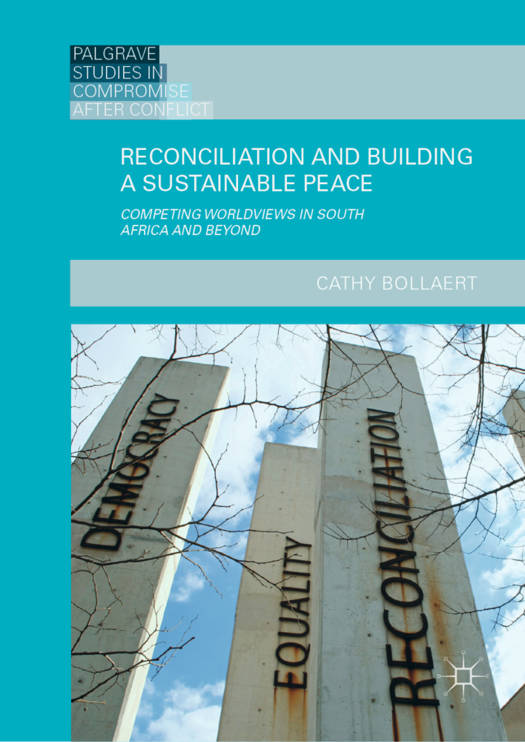
- Afhalen na 1 uur in een winkel met voorraad
- Gratis thuislevering in België vanaf € 30
- Ruim aanbod met 7 miljoen producten
- Afhalen na 1 uur in een winkel met voorraad
- Gratis thuislevering in België vanaf € 30
- Ruim aanbod met 7 miljoen producten
Reconciliation and Building a Sustainable Peace
Competing Worldviews in South Africa and Beyond
Cathy BollaertOmschrijving
This book explores how competing worldviews impact on intergroup relations and building a sustainable peace in culturally diverse societies. It raises the question of what happens in a culturally diverse society when competing values and ways of interpreting reality collide and what this means for peace-building and the goal of reconciliation. Moreover, it provides a valuable and needed contribution to how peace-building interventions can become more sustainable if tied into local values and embedded in a society's system of meaning-making. The book engages with questions relating to the extent transitional policies speak to universal values and individualist societies and the implications this might have for how they are implemented in collective societies with different values and forms of social organisation. It raises the question of cultural equality and transformation and whether or not this is something that needs to be addressed within peace-building theory. It arguesthat inculcating worldview into peace-building theory and practice is a vital part of restoring dignity and promoting healing among victims and formerly oppressed groups. This book, therefore, makes an important contribution to what is at best a partially researched topic by providing a deeper understanding of how identity and culture intersect with peace-building when seeking to build a sustainable peace.
Specificaties
Betrokkenen
- Auteur(s):
- Uitgeverij:
Inhoud
- Aantal bladzijden:
- 209
- Taal:
- Engels
- Reeks:
Eigenschappen
- Productcode (EAN):
- 9783030036546
- Verschijningsdatum:
- 25/02/2019
- Uitvoering:
- Hardcover
- Formaat:
- Genaaid
- Afmetingen:
- 148 mm x 210 mm
- Gewicht:
- 426 g

Alleen bij Standaard Boekhandel
Beoordelingen
We publiceren alleen reviews die voldoen aan de voorwaarden voor reviews. Bekijk onze voorwaarden voor reviews.











